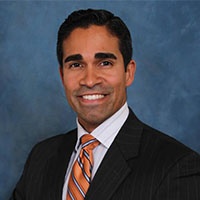West Point Misdemeanor Lawyer, New York
Sponsored Law Firm
-
 x
x

Click For More Info:
-
Kevin T. Conway
664 Chestnut Ridge Rd Spring Valley, NY 10977» view mapCriminal Defense Experience You Can Trust
Kevin T. Conway uses an individualized approach to make sure your case gets the attention it deserves.
800-741-3561
Angel I. Falcon
✓ VERIFIEDCriminal, DUI-DWI, Felony, Misdemeanor, Traffic
Angel I. Falcon is a Dutchess County based general practice catering to the legal needs of individuals and businesses in the Hudson Valley and surroun... (more)
Zev Goldstein
✓ VERIFIEDMotor Vehicle, DUI-DWI, Criminal, Misdemeanor, Felony
Attorney Zev Goldstein fighting traffic tickets and other crimes for 30 years
Attorney Zev Goldstein specializes his practice in handling traffic violations and driving-related crimes such as speeding, DWI/DUI, Aggravated Unlice... (more)
Anthony John Davidowitz
Immigration, Employment Contracts, Child Support, Misdemeanor
Status: In Good Standing Licensed: 16 Years
Steven Howard Cohen
Divorce, Divorce & Family Law, Misdemeanor, Personal Injury
Status: In Good Standing Licensed: 39 Years
James Winslow
Criminal, DUI-DWI, Felony, Misdemeanor
FREE CONSULTATION
CONTACTKenneth Puig
DUI-DWI, Misdemeanor, Personal Injury, Traffic
Status: In Good Standing Licensed: 27 Years
FREE CONSULTATION
CONTACTNatasha Marie Turner
Divorce & Family Law, Misdemeanor, Criminal, Collection
Status: In Good Standing Licensed: 19 Years
Peter Joseph Gleason
Education, Immigration, Employment Discrimination, Misdemeanor
Status: In Good Standing Licensed: 21 Years
Keith Roland Murphy
Landlord-Tenant, Health Care Other, Misdemeanor, DUI-DWI, Criminal
Status: In Good Standing
Brandon Charles Ozman
Education, Dispute Resolution, Criminal, Bankruptcy & Debt, Misdemeanor
Status: In Good Standing Licensed: 36 Years
 Kevin Conway Spring Valley, NY
Kevin Conway Spring Valley, NY AboutKevin T. Conway
AboutKevin T. Conway Practice AreasExpertise
Practice AreasExpertise


